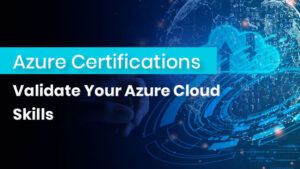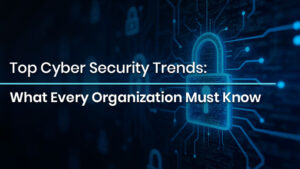
Azure Certifications – Validate Your Azure Cloud Skills
Azure Certifications – Validate Your Azure Cloud Skills Introduction Cloud computing has transformed the business landscape, providing scalability, flexibility, and affordability in a way
Limited-Time Offer! Get an exclusive 40% OFF on IPSpecialist Premium Monthly & Annual Plans. Use Promo Code: UPSKILLNOW at checkout.

Azure Certifications – Validate Your Azure Cloud Skills Introduction Cloud computing has transformed the business landscape, providing scalability, flexibility, and affordability in a way

Top Cyber Security Trends: What Every Organization Must Know Introduction In an era marked by digital transformation, remote workforces, and rapidly evolving threat landscapes,

Zero Trust vs. SASE: Everything You Need to Know Introduction As the cyber world continues to change, companies need to look beyond conventional security
Table of Contents
 Businesses benefit from Blockchain-as-a-Service (BaaS) by having a quick and simple way to launch new blockchain networks and utilize cloud-managed services. Many decentralized applications were powered by Microsoft’s Azure BaaS, which also gave rise to prospective blockchain firms.
Businesses benefit from Blockchain-as-a-Service (BaaS) by having a quick and simple way to launch new blockchain networks and utilize cloud-managed services. Many decentralized applications were powered by Microsoft’s Azure BaaS, which also gave rise to prospective blockchain firms.
Modern blockchain technologies initially developed to act as the foundation for Bitcoin now support sophisticated applications in various industries, including energy, healthcare, retail, and many more. Blockchains have long been recognized for their security benefits, and many businesses are looking for ways to create private or semi-public networks to support their operations.
Cloud platforms like Microsoft Azure Blockchain Service support several apps for business use, which offer the development tools and managed services needed to build and maintain corporate networks. They offer quick governance, quick assembly of blockchain infrastructure, and provide owners with tools to monitor ledger data and performance. This article covers depth knowledge of Azure Blockchain Service.
To understand more about Azure Services, check out our Azure Courses now!
Blockchain technology enables organizations to streamline shared workstreams such as supply chains by exchanging and tracking assets and transactions on a shared ledger.
Blockchain networks are frequently distributed among a group of partners (referred to as a consortium) in enterprise use, providing each partner with real-time visibility into every transaction. Each partner can also reject incorrect transactions before they are posted to the ledger, simplifying auditing and significantly reducing the risk of fraud.
The Microsoft Azure Blockchain Service is a BaaS platform that automates numerous parts of blockchain networks through ready configuration choices. It makes it simple and easy to build and operate blockchain platforms.
Azure Blockchain lowers the upfront costs associated with setting up and maintaining the blockchain network. Often, these cost advantages outweigh those of conventional remedies.
Additionally, the platform provides simple connectivity with outside blockchain services. Azure Marketplace makes it simple to access additional services created for blockchain networks by Microsoft Blockchain Partners.
With the help of managed Azure infrastructure, users may launch and run large-scale blockchain networks using the Azure Blockchain Service. Users are given the ability to have unified control over both the networks they provide and the underlying infrastructure.
Azure Blockchain Service includes many more helpful capabilities about performance, service, maintenance, security, monitoring, logging, and consortium administration, in addition to simplifying network deployment and operations.
Deploying a blockchain network is simple. The deployment of the validator and transaction nodes are both included in the service. Virtual networks are also available for service-managed storage and security seclusion. Users can join or start a consortium when deploying a new network node.
The consortiums allow different parties to utilize blockchain technology and its inherent benefits to securely communicate and share data. Unlike the conventional, non-BaaS techniques, which require days, the Azure Blockchain Service allows for quick deployments and provisioning of the blockchain network.
Azure Blockchain Service offers basic and common tiers. The levels offer varied performance, storage, and support capabilities. For testing and proof-of-concept deployments, the basic tier is typically advised. The standard tier is advised for deployments requiring a high production level.
Better computing infrastructure is also available on the base tier. The standard tier has two validator nodes, whereas both tiers include at least one transaction node. Although the availability of the standard tier is guaranteed, the availability of the basic tier is not.
Additional transaction nodes can join the blockchain network once the first member is created on Azure Blockchain Service. Firewall rules safeguard the transaction nodes, and access must be set up.
Each transaction node uses TLS to encrypt the data (Transport Layer Security). Securing access to transaction nodes involves several additional security measures, including basic authentication, access keys, and Azure Active Directory integration.
Azure Blockchain Service ensures that all member nodes continue to host the most recent security measures through automated upgrades. The nodes constantly host the most recent versions of the operating system and ledger software stacks, in addition to security updates. Compared to standard IaaS blockchain nodes, the managed service involves less DevOps activity.
Azure Monitor Service, which employs numerous system metrics to offer information on the state of infrastructure and application resources, collaborates with Azure Blockchain Service.
The monitoring function also offers insights into other node information, including the mined transactions and blocks, the transaction queue depth, and active connections.
Additionally, when the specified metric threshold value is exceeded, the system can alert users through email or push notification and start other associated components.
A consortium is a collection of network users who engage in multi-party transactions and have a common body of bounded logic. The Azure Blockchain Service manages the consortiums through preset smart contracts that specify the actions that each consortia member is permitted to do. The consortium administrator imposes the governance guidelines. Only by invitation may one join the consortium. Programmatic management is used for consortiums.
The Azure Blockchain Workbench is a collection of Azure services and tools that Microsoft has put together to give users the quickest method to begin developing blockchain applications. The Workbench offers the essential framework for developing and deploying blockchain applications, enabling secure and dependable data and process sharing between several enterprises.
The controlled nature of applications created with Azure Blockchain Workbench allows app developers to concentrate completely on providing smart contracts and developing business logic. The Workbench also makes it simple for developers to automate typical development tasks.
The Azure Blockchain Workbench’s main purpose is to act as a toolkit for the quick development of blockchain applications. Blockchain Workbench users can configure their applications and create smart contract codes to specify their apps.
The Workbench offers a web application and REST APIs for management, enabling efficient management of created blockchain apps and users. The administrators can assign user roles and control program access.
The Blockchain Workbench provides a collection of interfaces that make it easier to include blockchain applications with various distributed ledger technologies, storage services, and database options. In addition, Azure Blockchain Workbench uses Azure Resource Manager templates to make it easier to create consortium blockchain networks. This makes deploying the application and every other element required to create the consortium simple.
The Azure Blockchain Service decommissioned on September 10, 2021. Customers are advised to use ConsenSys Quorum Blockchain Service as a direct replacement, as it has more features and offers more flexible deployment options for managed blockchain networks.
It is an entirely managed ledger service that allows businesses to set up and administer massive blockchain networks. Accelerate the development of the end-to-end blockchain application without worrying about infrastructure management.
When developing with blockchain, businesses must deploy and manage a consortium network across multiple organizations’ cloud footprints. This includes selecting and deploying a ledger, inviting members, assigning node identities, connecting nodes, configuring user permissions, and other activities. Once the network is established, it must be kept operational and updated.
QBS is a fully managed blockchain service that runs as a managed application from the Microsoft Azure Account and is easily deployed from the Azure Marketplace.
QBS enables enterprises to configure, deploy, and manage these networks, which are the foundation for cloud-based blockchain applications.
Aside from increased transparency, incorporating QBS into the subscription provides additional benefits, such as lower costs from any pre-negotiated rates or discounts tied to reserved instance commitments users may have with Microsoft.
With Azure’s BaaS service, users could easily construct a blockchain network, join or create consortiums, add members, and expand the deployment of blockchain applications. Building and managing blockchain applications is simple with the Azure Blockchain Solution, a cloud-based blockchain service. It offers a straightforward yet effective method for managing blockchain apps on the cloud. Azure Blockchain Service is built on top of Azure Cloud Services, which delivers scalability, security, and reliability.
© 2025 All rights reserved | Privacy Policy | Terms and Conditions | Sitemap | Cookie Policy




